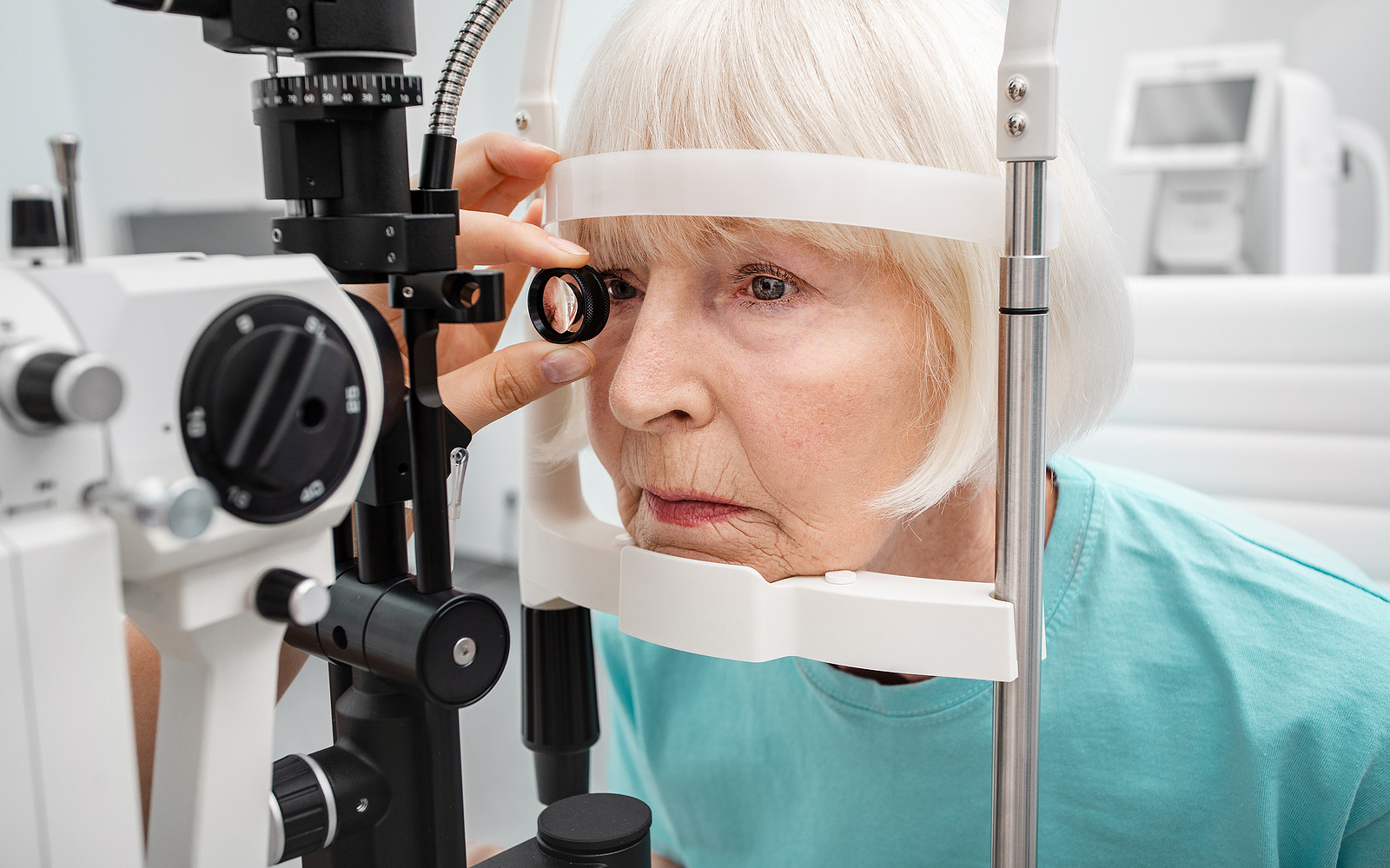Can Contact Lenses Damage Your Eyes?

To avoid eye damage, it’s important to properly care for your contact lenses at all times.
Contact lenses offer many benefits like clearer vision and improved convenience over glasses. However, they can also lead to discomfort or even eye damage if not cared for properly.
In fact, poorly managed contacts can block the flow of oxygen to your eyes, cause infection, and lead to irritation in the form of dry, red eyes. To keep your vision in top shape, follow these contact lens best practices:
1. Clean Lenses Properly
Tiny debris like dust, hair, or lint can stick to the surface of your contact lenses throughout the day or simply while you’re handling them, creating discomfort. To prevent this, thoroughly wash your hands to remove dirt and bacteria from your fingers and soak your lenses nightly. Always place contacts in a clean case — one that is disinfected regularly — with fresh solution. Never reuse the contact solution left in the case from the night before.
2. Discard Contacts as Directed
Even if you rinse them regularly, overwearing contact lenses can cause complications with your eyesight. Protein deposits, microorganisms, and allergens build on your contact lenses over time — no matter how well you clean them. Eventually, this build-up can result in blurry vision, dryness, and a burning sensation when you insert your lenses.
For best results, follow all of the instructions your contact lens manufacturer provides. For example, if you use daily disposables, don’t wear them for a week. If you wear lenses that are designed to be worn for weeks or months, use a calendar to track exactly when you need to replace them.
3. Avoid Sleeping in Contacts
A short nap in your contacts is fine, but it’s best to avoid a full night’s sleep with your lenses in. Even if they purport to be designed for overnight use, repeated wear while you sleep puts you at risk of eye infection and microbial keratitis — an infection of the cornea that could result in surgery or permanent vision loss. According to the Centers for Disease Control, sleeping in contact lenses makes individuals six to eight times more likely to contract a lens-related eye infection.
4. Get Fitted Regularly by an Eye Doctor
All eyes are unique and no two (even your own) are the exact same. What’s more, your eyes evolve and change throughout your lifetime. It’s important to visit an eye specialist at least once a year to have your eyes and lenses examined. Your prescription and even the type of contacts that were working for you last year may no longer be effective. An eye specialist will let you know which type of lenses is best suited for you at this time in your life.
Experiencing Contact Lens Discomfort?
At the end of the day, contact lenses may not be the right corrective option for your eyes. If you find yourself plagued by dry, red, and irritated eyes more often than not, you may want to explore the possibilities of LASIK, a minimally-invasive corrective eye surgery that has allowed millions of people worldwide to experience life without glasses or contacts.
To find out if LASIK is right for you, reach out to the expert team at our Mesa and Chandler locations today.
[DISPLAY_ULTIMATE_SOCIAL_ICONS]








